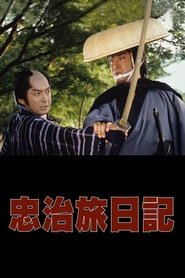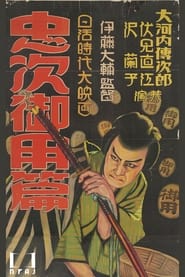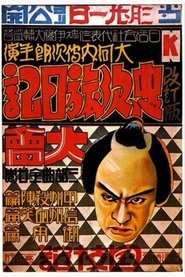Chuji S Travel Diary Iii The Chuji Patrol Episode
Chuji S Travel Diary Iii The Chuji Patrol Episode, Streaming ita _ film cb01 alta definizione, chuji travel || film complet et série vostfr
The Diary of Chuji's Travels
( TV Serie )
A historical drama about the days of youth of the famous yakuza boss, the protector of ordinary people Chuji Kunisada.
The film was made to commemorate the 35th anniversary of Kinya Kitaoji's acting career.
Chuji's Travel Diary: The Chuji Patrol Episode
Titre original: 忠次旅日記 忠次御用篇 ( Film )
The Japanese equivalent of penny dreadfuls glorifying Jesse James, A Diary of Chuji’s Travels gives a unique gloss to the tale of Chuji Kunisada, the legendary bakuto (or gambler, the precursors to modern-day yakuza). One of the two remaining segments of Ito’s original four-hour trilogy, it depicts Chuji’s attempt to save the geisha Oshina, a rebellion against the rigid social structure of Edo Japan. With socialist overtones, it’s a passionate artifact of early Japanese film.
Chuji's Travel Diary: Koshu tate hen
Titre original: 忠次旅日記 甲州殺陣篇 ( Film )
The first of Chuji's Travels.
Chuji's Travel Diary: Story of Bloody Shinshu
Titre original: 忠次旅日記 信州血笑篇 ( Film )
A Diary of Chuji's Travels is a silent Japanese jidaigeki made in 1927 starring Denjirō Ōkōchi and directed by Daisuke Itō. It was originally released in three parts, all of which were long thought to be lost until portions of the second part and much of the third part were discovered and restored in 1991. Since the film had once been voted in a 1959 Kinema Junpō poll as the best Japanese film of all time, its discovery was significant. At the time of its release, Itō was the leader of a new style of samurai films that featured outlaw heroes and fast-cut sword fighting scenes.




